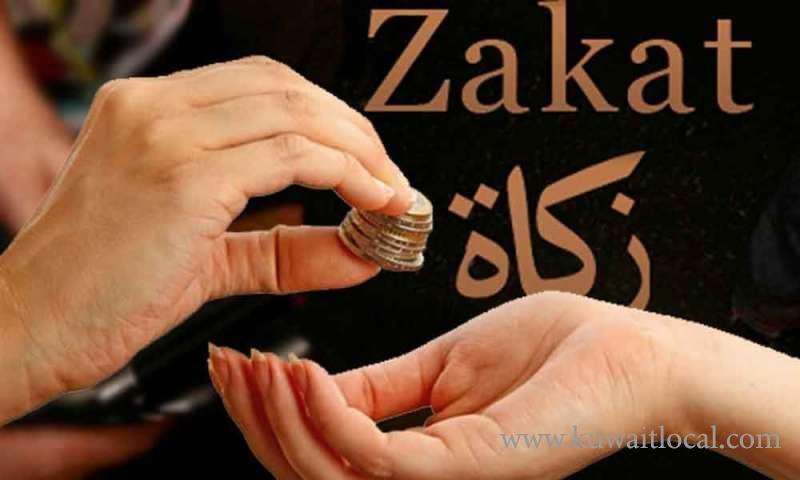Latest News
- Kuwait-Jordan Durra Field Joint Statement Rejected By Iran
- GTD Cracks Down On Vehicle Noise Pollution In Sulaibiya
- Mystery Of Dead Fish At Shuwaikh Beach Sparks Urgent Action
- MEW To Complete Links With The Interior And Justice Ministries B...
- 8 Expats Jailed For Bribing An Officer To Obtain Driver's Licens...
- Weekend Weather Is Expected To Be Hot
- From Tomorrow, Traffic Diversion On Third Ring Road
- Ministry Of Health Refute Rumors On Non-availability Of Antibiot...
- Amir Of Kuwait And Jordan King Renew Commitment To Regional Secu...
- 37 Arrested With Narcotics And Firearms
- Outrage Over Candidate's Arrest
- Six Stores Shut Down In Jahra For Selling Fake Goods
What Is Zakat, How To Calculate And Who Can Receive

What is Zakat
Zakat, the giving of alms to the poor and needy, is one of the five pillars of Islam (the others are the declaration of faith, prayer, fasting in Ramadan and Hajj). It is obligatory upon every adult Muslim of sound mind and means.
The individual must own a specific amount of wealth or savings (after living costs, expenses etc). This is referred to as Nisaab and is the threshold at which Zakat becomes payable. The amount of Zakat to be paid is 2.5% of Nisaab.
Why do we give Zakat?
Zakat is not charity, It is not voluntary charity, not a tax but an obligation. By giving Zakat, a Muslim is acknowledging that everything we have is Allah’s and we do not really own it, and we should use it to remember Allah and help those who are in need. It is also an act to help free us from excessive desire and greed, learn self-discipline and honesty
When should we give Zakat?
You should record the Islamic date on which you first became the owner of Nisaab – if on the same date the following lunar year, you are still the owner of Nisaab, you will be obliged to pay Zakat. Many Muslims choose to give it during Ramadan as the rewards for good deeds performed in Ramadan are greater than in any other month
Who can receive Zakat?
The Qur’an mentions eight groups of people on who Zakat should be spent:
1. The Fuqara’ (the poor)
2. Al-Maskin (the needy)
3. Aamileen (Zakat collector)
4. Muallafatul Quloob (poor and needy who recently converted to Islam)
5. Ar-Riqaab (slaves; Zakat can be used to purchase their freedom)
6. Ibnus-Sabeel: A stranded traveller in need of financial assistance.
7. Al Ghaarimeen: A debtor
8. Fi Sabeelillah: Those who are away from home in the path of Allah
Trending News
-
 Kuwait Implements Home Biometrics Services Ahead O...
14 April 2024
Kuwait Implements Home Biometrics Services Ahead O...
14 April 2024 -
 Kuwait Airways Provides Update On Flight Schedule...
14 April 2024
Kuwait Airways Provides Update On Flight Schedule...
14 April 2024 -
 Kuwait Airways Introduces Convenient Home Luggage...
15 April 2024
Kuwait Airways Introduces Convenient Home Luggage...
15 April 2024 -
 Expat Residency Law Amended By Kuwait Ministerial...
20 April 2024
Expat Residency Law Amended By Kuwait Ministerial...
20 April 2024 -
 Two Expats Are Arrested For Stealing From Salmiya...
17 April 2024
Two Expats Are Arrested For Stealing From Salmiya...
17 April 2024 -
 Kuwait Airways Resumes Flights To Beirut And Oman...
15 April 2024
Kuwait Airways Resumes Flights To Beirut And Oman...
15 April 2024 -
 Temperature Increases Cause Electricity Load Index...
21 April 2024
Temperature Increases Cause Electricity Load Index...
21 April 2024 -
 Thief Returns Stolen Money With An Apology Letter...
15 April 2024
Thief Returns Stolen Money With An Apology Letter...
15 April 2024 -
 3 Expats Caught In Salmiya With 213 Bottles Of Loc...
23 April 2024
3 Expats Caught In Salmiya With 213 Bottles Of Loc...
23 April 2024 -
 Ministry Of Interior Denies Social Media Rumors Re...
13 April 2024
Ministry Of Interior Denies Social Media Rumors Re...
13 April 2024












Comments Post Comment